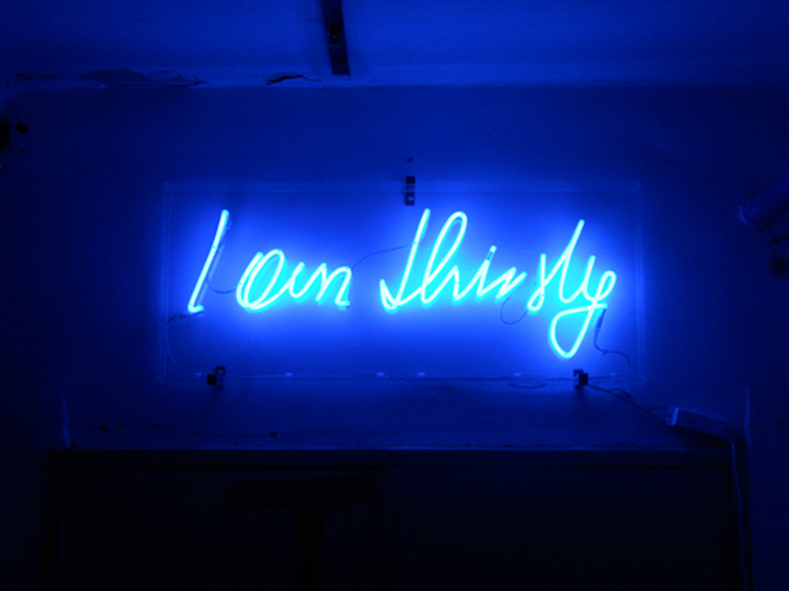|
Fifth Word: I am thirsty
John 19:28 I heard a curious story on NPR the other day. We are all aware that California has been experiencing a dreadful drought in recent years. But in recent weeks, they’ve received a good deal of rain… frankly, more than the scorched earth can handle. Anyway, who knows how long the rain will last but finally, at long last, California’s reservoirs are… well, starting to look like reservoirs again. But here’s where the story takes an odd turn… A century and a half ago – long before our modern scientific weather forecasting capabilities – a law was passed in California. If reservoirs exceed 60% capacity, they are required to release their water and reduce it to 60%. Otherwise, if a major storm caught them unaware, the reservoirs would overflow and there’d be flooding. But right now, the law is useless. California would love to fill up its reservoirs, but no can do. What a paradox. Likewise, it is so strange to hear Jesus, hanging on the cross, say “I am thirsty.” Back in chapter four of John’s gospel, Jesus meets a Samaritan woman at a well and informs her that he is the source of living water. Later, in chapter seven, Jesus says, “Let anyone who is thirsty come to me, and let the one who believes in me drink.” And now on the cross, the self-proclaimed endless source of life-giving water, cries out “I am thirsty.” Now without a doubt, Jesus would have been thirsty. All that his body underwent likely caused dehydration. John makes clear to us: this was no walk in the park for Jesus. He was fully divine; but he was also fully human and we human creatures suffer terribly when we’re deprived of water. It is excruciating. This “Word [that] became flesh and lived among us”[i] wasn’t any different from our flesh in that respect. But Jesus is also divine and nowhere more so than in the gospel of John. In John, Jesus embraces his coming death. He is not running away from it. He is running toward it. They’ll be no “if it is possible, let this cup pass from me”[ii] for John’s Jesus. No, he takes that cup firmly in his hands. He is ready to drink from it. In chapter ten of John’s gospel, Jesus likens himself to a Good Shepherd. He says, “I am the good shepherd. The good shepherd lays down his life for the sheep…I lay down my life… No one takes it from me, but I lay it down of my own accord…”[iii] Later, in chapter 18, Jesus is praying in the garden when Judas brings the authorities there to arrest him. Peter responds in his usual impetuous fashion. He draws out his sword. But Jesus admonishes him, “Put your sword back into its sheath. Am I not to drink the cup that the Father has given me?”[iv] You see what I mean? Jesus has always known how this would end. He understands what he must do and he is ready to do it. And so, when he says he is thirsty, perhaps the meaning goes deeper than his parched lips, his dry mouth, and a yearning for fluid to assuage his dehydration. Perhaps, he is thirsty to complete his work. After all, his final word from that cross will be “It is complete.”[v] Barbara Brown Taylor writes, “’I am thirsty’ is what [Jesus] says, but what he means is, ‘I am ready.’”[vi] The introduction to John’s gospel tells us that Jesus has made God known to us.[vii] So, here at the end of his earthly life, hanging from a dreadful cross, just what is he teaching us about God? Well, that God will suffer anything to draw you into the fold because that is just how much God loves you. [i] John 1:14 [ii] Matthew 26:39. [iii] John 10:11, 17-18. [iv] John 18:11 [v] John 19:30 [vi] Thirsty for Heaven from Home By Another Way by Barbara Brown Taylor. Cowley Publications; 1999. Page 102. [vii] John 1:18
0 Comments
Leave a Reply. |
Trinity VoicesSee what people are saying about Trinity. Read and watch testimonies. Categories
All
Archives
December 2020
|
Trinity United Methodist Church
Growing in love and service through relationships with God and community
|
Connect with Us:
|
|

 RSS Feed
RSS Feed





